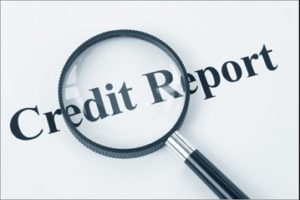National non-profit American Consumer Credit Counseling explains credit reports and how consumers can identify mistakes that could affect their financial lives.
Boston, MA – March 29, 2016

“Although Massachusetts consumers on average have some of the highest credit scores in the United States, many individuals do not understand their credit reports enough to identify mistakes and fix the error,” said Steve Trumble, President and CEO of American Consumer Credit Counseling, which is based in Newton, MA. “Inaccurate information on a credit report can not only signify fraudulent activity, it can lower a consumer’s credit score and impact many financial decisions and events.”
Credit report mistakes happen more often than consumers are aware of. A 2013 study by the Federal Trade Commission found that 1 in 5 consumers have errors on their reports. These mistakes can be caused by fraudulent activity, a creditor reporting information in an incorrect way or due to consumers with the same name , which is why it is important that consumers check their credit reports on a regular basis.
Consumers are entitled to one free credit report annually from each reporting agency, which includes TransUnion, Experian, and Equifax. The credit report will contain identifying information, such as a social security number and date of birth, trade lines, credit inquiries, and public records and collections. It is important that consumers review these free reports to ensure there are no mistakes.
According to Experian’s most recent list, the average credit score in the United States is 687. Massachusetts’ consumers have the sixth highest credit scores in the United States, with an average score of 710 – coming in behind Minnesota (718), North Dakota (715), South Dakota (712), Vermont (712) and New Hampshire (711).
American Consumer Credit Counseling provides steps for Massachusetts consumers to correct an error on their credit report:
- Contact the particular credit agency that has incorrect information.
- The agency has 30 days to investigate the information.
- Information must be removed from a file if the CRA cannot verify it, or correct the errors.
- If the consumer disagrees with the result of the investigation, they have the right to submit a 100-word explanation, giving their version of the dispute.
ACCC is a 501(c)3 organization that provides free credit counseling, bankruptcy counseling, and housing counseling to consumers nationwide in need of financial literacy education and money management. For more information, contact ACCC:
- For credit counseling, call 800-769-3571
- For bankruptcy counseling, call 866-826-6924
- For housing counseling, call 866-826-7180
- Or visit us online at ConsumerCredit.com
About American Consumer Credit Counseling
American Consumer Credit Counseling (ACCC) is a nonprofit credit counseling 501(c)(3) organization dedicated to empowering consumers to achieve financial management and debt relief through education, credit counseling, and debt management solutions. In order to help consumers reach their goal of debt relief, ACCC provides a range of free consumer personal finance resources on a variety of topics including budgeting, credit and debt management, student loans, youth and money, homeownership, identity theft, senior living and retirement. Consumers can use ACCC’s worksheets, videos, calculators, and blog articles to make the best possible decisions regarding their financial future. ACCC holds an A+ rating with the Better Business Bureau and is a member of the National Foundation for Credit Counseling® (NFCC®). For more information or to access free financial education resources, log on to ConsumerCredit.com or visit TalkingCentsBlog.com.
